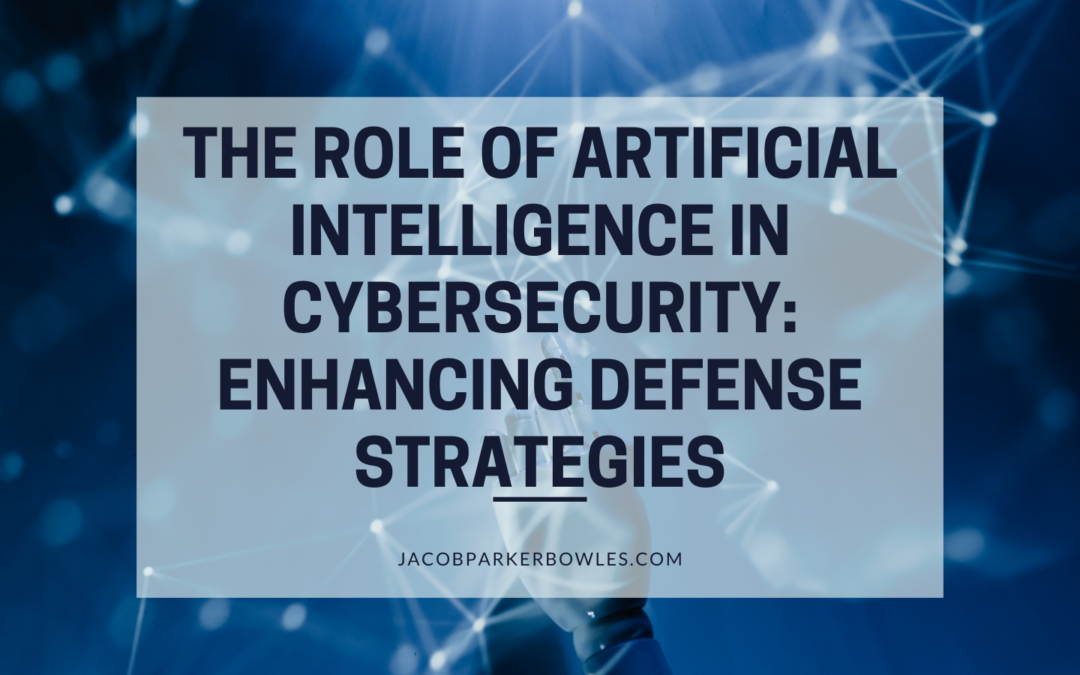In today’s digital landscape, the threat of cyberattacks is ever-present. As cybercriminals become more sophisticated, organizations must leverage advanced technologies to fortify their defense strategies. One such technology that is revolutionizing cybersecurity is artificial intelligence (AI). AI offers powerful capabilities that enable proactive threat detection, real-time response, and adaptive defenses.
Proactive Threat Detection
AI-powered cybersecurity systems can analyze vast amounts of data in real time, enabling the identification of potential threats before they cause significant harm. Through machine learning algorithms, AI systems can detect patterns, anomalies, and indicators of compromise, helping security teams stay one step ahead of cybercriminals.
Real-Time Incident Response
AI-driven cybersecurity solutions enable organizations to respond swiftly and effectively to cyber incidents. These systems can automate incident response processes, providing real-time alerts, threat prioritization, and automated remediation actions. AI algorithms can analyze and correlate data from multiple sources, allowing security teams to respond to threats promptly.
Behavioral Analysis and Anomaly Detection
AI algorithms excel at analyzing user behavior and network activity. By establishing baselines and continuously monitoring for deviations, AI-powered systems can identify suspicious activities that may indicate a potential breach. Behavioral analysis helps detect insider threats, advanced persistent threats, and zero-day attacks that may bypass traditional security measures.
Predictive Analytics
AI’s ability to analyze vast amounts of historical and real-time data enables predictive analytics in cybersecurity. By identifying patterns and trends, AI algorithms can anticipate potential vulnerabilities and emerging threats. This proactive approach allows organizations to take preemptive measures to strengthen their security posture.
Adaptive and Self-Learning Defenses
One of the most significant advantages of AI in cybersecurity is its ability to adapt and learn from new threats. AI systems can continuously update their knowledge base, incorporating insights from previous attacks and the latest threat intelligence. This adaptability allows AI-driven defenses to evolve alongside rapidly evolving cyber threats, making them more resilient and effective.
User Behavior Analytics
AI can analyze user behavior, enabling organizations to detect and prevent unauthorized access, account takeovers, and other identity-related attacks. By leveraging AI-driven user behavior analytics, organizations can identify abnormal activities and take appropriate action to mitigate risks.
Artificial intelligence is revolutionizing the field of cybersecurity by enhancing defense strategies and empowering organizations to detect, respond to, and mitigate cyber threats proactively. With its ability to analyze vast amounts of data in real time, AI enables proactive threat detection, real-time incident response, and adaptive defenses. By leveraging AI-driven cybersecurity solutions, organizations can strengthen their security posture, protect critical assets, and stay ahead of evolving threats. However, it’s crucial to note that AI is not a standalone solution but a powerful tool that works with human expertise and a comprehensive cybersecurity framework. By combining the power of AI with skilled cybersecurity professionals, organizations can build robust defense strategies that safeguard their digital assets in the ever-evolving threat landscape.

